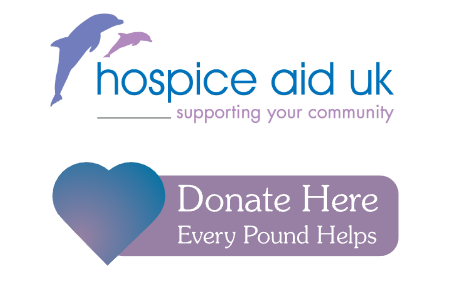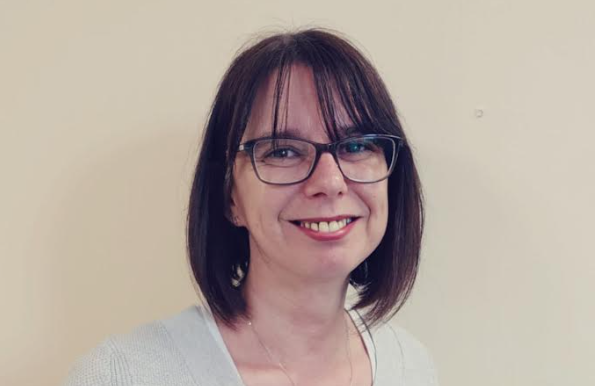A thirst for change is on the horizon and people in the charity sector are taking to creating
anonymous Twitter accounts to make it happen. But what are these accounts achieving?
_______________________________________________________________________
Twitter can be both a blessing and a curse, but it’s undeniable that the charity sector has been able to use it to its advantage. Charity CEOs can interact and get advice from others in their position, fundraisers can connect directly with donors and charities can announce news and appointments; shouting about their achievements to the wider public.
According to Empower, 77% of charities worldwide have a Twitter profile, with 48% tweeting at least once a day. With over 177,000 charities registered in the UK, in addition to their employees and volunteers, that’s a lot of accounts.
Of course, the way Twitter works, it means that those with less favourable views also get a say. It also means that people have the space to speak out against charities and bad practices.
This isn’t new. In 2019, an anonymous Twitter account, claiming to be an Alzheimer’s
Society employee, criticised the charity’s ‘poor leadership’ and called out bullying from within. Earlier this year, a tweet was posted regarding the Captain Tom Foundation’s spending on fundraising consultancy and created a Twitter storm. It’s unlikely that without Twitter, either of these would have happened. So what’s going on now?
The sector is facing a recruitment crisis, with a recent Charity Times survey finding [79%] of CEOs struggling to recruit. Just under half (48%) said staffing was the biggest challenge their organisation currently faces. Accounts on Twitter suggest the crisis is because of a multitude of factors, @FlexibleFirst, @NoDriverWelcome and @NonGradsWelcome speak for themselves. A more inclusive style of recruitment is needed and is almost demanded from jobseekers.
“Stop moaning, start listening”
The account @CrapRecruitment began in February 2022 calling out bad recruitment because it felt that “calling it out was one of the ways that change could be instigated across the sector.”
The person behind the account says: “Why now? Because organisations and recruiters keep moaning about how hard it is to find quality candidates currently. Many claiming it’s because of job security following the uncertainty of the pandemic, or because floods of people have left the sector. Some of that may be true to a degree, but that’s not the whole reason.
“Part of it is because your organisation might be giving candidates a crap experience. And if that’s the case, first impressions are poor and people won’t want to work for you. Stop the moaning and start listening!”
In a similar fashion, @NonDriversWelcome began tweeting in March 2022 alongside @FlexibleFirst, who began the account after a conversation on Twitter about how charities are still not flexible by default. Discussions showed the “frustrations shared by some about being shut out of the sector.”
A lot of the accounts suggest that one of the only ways to get change within the sector is by forcing the issue on a public stage. @NonGradsWelcome, which was created in May 2019 and which has gained more followers since the pandemic, pointed out that reputational risk is the only things that will make organisations take notice and implement change.
One of the first accounts to realise this was @CharitySoWhite. In 2019, one of its founders, Fatima Ifikhar tweeted about racist stereotypes within some training materials, including the hashtag #CharitySoWhite. Soon, others in the industry started to share their experiences and the account began in response. “We set up the account to focus that attention to push leaders in the charity sector to acknowledge that systematic racism exists within their organisations and commit to tackling it,” said its spokesperson.
A level of anonymity
The fact that these accounts are anonymous is interesting too. Why don’t the people behind these accounts feel like they can speak out in a sector that claims to be so inclusive and willing to listen?
The @CharitySoWhite spokesperson points out that the fact it’s taken a number of movements to bring these issues to light shows “just how homogeneous and white” the sector really is.
“So many of us have felt unwelcome or like we don’t fit when entering white, middle-class dominated spaces in the charity sector. So many of us have had to change the ways we behave and present at work to fit in. But still, many white people and leaders across the sector think of our workplaces as welcoming and caring. The truth is that the sector is nice and welcoming but only to people that look like us and fit into the white middle class mould that exists in our organisations.”
The person behind @FlexibleFirst also argues that as these accounts are often driven by personal experience of the issues, people can feel uncomfortable speaking out.
“I’m lucky in that I have a supportive organisation, but have been labelled a ‘troublemaker’ in the past for calling for a more equal charity sector…I have more freedom being anonymous.” As it’s a woman behind the account, she also admits that trolls are another issue. “Tweets about flexible working always attract male, unconstructive trolls.”
Along the same lines, the @CrapRecruitment spokesperson explains that because so many people that work within the sector have a passion for what they do, it can make them defensive, and that can manifest in a lot of ways. If the person behind the account isn’t on firm ground, perhaps job hunting, then it may affect their ability to do that.
It’s not just the trolls online they may have to worry about, but also individuals within the sector. “There is still a lot of old guard within the sector, often pale, male and stale – they especially don’t like to be challenged and wield clout in certain circles,” the spokesperson says. “If you care enough to change to sector, you also probably care about your job so that makes it hard to stick your neck out and call out poor practise in others.”
Ultimately, as @CrapRecruitment says: “Accounts like this also give people who feel like they lack power and influence within the sector a chance to contribute to challenging those who hold power, but in a safe way.”
A hope for change
But are these accounts for show, or are they actually influencing change? The pandemic necessitated a need for change for flexible working but now is a crucial time, argues @CrapRecruitment. “We are at the point where it feels like old habits may slip back in if we aren’t careful – so that’s why these anonymous accounts are keeping their foot on the gas.” Since its inception, the account has already hit 700 followers.
@CharitySoWhite meanwhile acknowledges that there is lots of work being done at policy level, but the sector isn’t working to challenge its own biases. The account, followed by over 17,000 people, has allowed people to share their experiences of racism working within the sector, and showed them they’re not alone. “Our campaign itself is not important, but the conversation that we started has led to real change across the sector,” they add.
On the majority, these accounts have seen a positive response. @FlexibleRecruitment says hiring managers have been in touch to ask for advice on improving, and like others, it has grown fast. Negative comments have been from “people who are currently traditional leaders who want to keep the status quo.” @CharitySoWhite says that many people have welcomed the conversation, with white people “shocked and in disbelief” at the stories, uncomfortable that it was happening.
“We were able to reach out to a lot of leaders in the sector through this campaign to talk about how racism operates in their organisations and commit to tackling it. However we’d be lying if we said the reaction has all been positive. Some people have criticised us under their breaths and dismissed us for years, and at times those attacks have been directed at us individually.”
So, it looks as though Twitter is having an influence and things are changing – if only because these accounts are forcing charities to air their dirty laundry on a public stage.
As the @CrapRecruitment spokesperson concludes: “As a sector, we can be better, but it takes fresh approaches, self-reflection and listening to others.”
Latest News
-
X-odus sparks video content boom among charities, report finds
-
Charity handed £25m endowment from autistic philanthropist to help others with the condition
-
Civil Society Covenant blighted by delays and U-turns, report warns
-
More than 30 jobs at risk as hospice charity looks to close home care service
-
Cranfield Trust: A guide for charity leaders on navigating local authority devolution
-
Friday funding roundup - 20 February
Charity Times video Q&A: In conversation with Hilda Hayo, CEO of Dementia UK
Charity Times editor, Lauren Weymouth, is joined by Dementia UK CEO, Hilda Hayo to discuss why the charity receives such high workplace satisfaction results, what a positive working culture looks like and the importance of lived experience among staff. The pair talk about challenges facing the charity, the impact felt by the pandemic and how it's striving to overcome obstacles and continue to be a highly impactful organisation for anybody affected by dementia.
Charity Times Awards 2023
Mitigating risk and reducing claims

The cost-of-living crisis is impacting charities in a number of ways, including the risks they take. Endsleigh Insurance’s* senior risk management consultant Scott Crichton joins Charity Times to discuss the ramifications of prioritising certain types of risk over others, the financial implications risk can have if not managed properly, and tips for charities to help manage those risks.
* Coming soon… Howden, the new name for Endsleigh.
* Coming soon… Howden, the new name for Endsleigh.
Better Society

© 2021 Perspective Publishing Privacy & Cookies














Recent Stories